Business
World will extend cooperation with Afghan Gov’t: McKinley

US Ambassador to Afghanistan P. Michael McKinley has stated that International community will once again extend their cooperation for Afghanistan Government, the extension of cooperation will be on economy, development and Women rights.
CEO Dr. Abdullah and Ambassador McKinley join women civil society leaders at USAID Promote Musharikat National Summit
CEO Abdullah Abdullah and U.S. Ambassador to Afghanistan, P. Michael McKinley recognized 300 women civil society leaders for their work to empower the women of Afghanistan and encouraged the continuation of their efforts.
Speaking to the women at the Government Media and Information Center, CEO Dr. Abdullah said: “I am honored to have the opportunity to address so many brave, committed women from across Afghanistan. I firmly believe that the work you are doing with Promote Musharikat is of critical importance for Afghanistan… empowering women leads to stronger families and communities and, ultimately, to a more equitable and peaceful country.”
The National Summit is the culmination of a series of regional forums held from January through April 2016, during which women-focused civil society organizations and activists throughout Afghanistan collectively identified and prioritized the most critical issues impacting Afghan women.
The National Summit gathered more than 300 representatives from all 34 provinces to form inclusive coalitions and develop preliminary plans to address these challenges.
During the closing ceremony, the representatives introduced the first three Musharikat Issues-based Coalitions which will focus on the highest priority issues selected by Summit delegates:
- Access to Education
- Violence Against Women
- Access to Economic Opportunity
Ambassador McKinley commended the women on their strong start. “The United States has always prioritized investment in Afghan women in every sector: health, economic growth, education, and agriculture.
However, there is a change in politics being pursued at this conference that is extraordinarily significant for contextualizing the U.S. commitment to women. You have laid the foundation with your voice on how we can work together in the future with greater urgency and immediacy,” said McKinley.
The Promote Musharikat project will work with more than 50 CSOs and 5,000 activists across all 34 provinces to prioritize and address the most critical issues which limit women’s full participation in Afghan society.
Musharikat is part of the USAID Promote initiative, a joint commitment by the U.S. and Afghan governments to empower over 75,000 women across Afghanistan over the next five years.

Business
IEA plans regional energy trade hub with Russian oil in mind
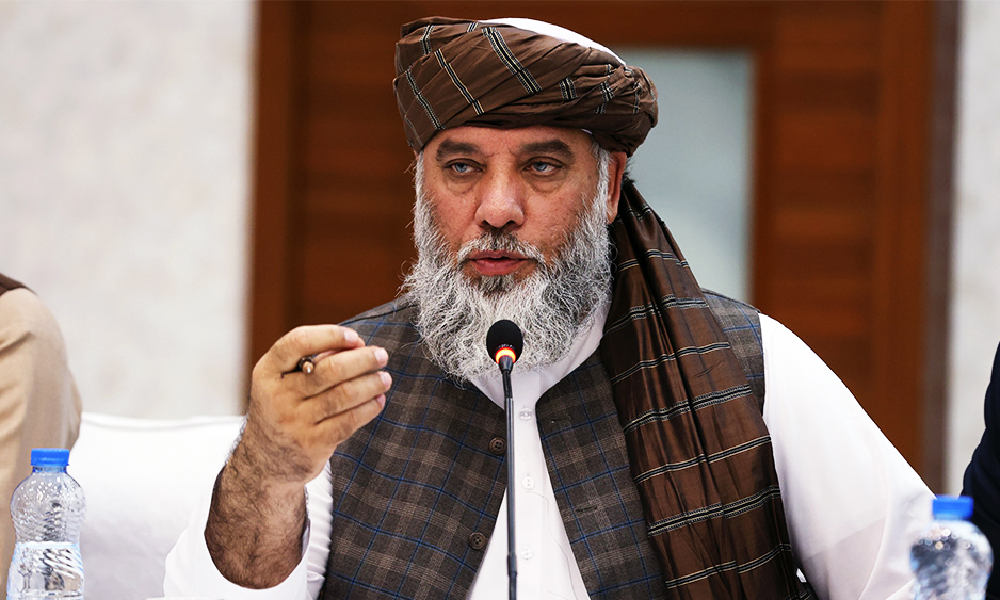
The Islamic Emirate of Afghanistan (IEA) has agreed with Kazakhstan and Turkmenistan to build a logistics hub in western Afghanistan aimed at making the war-torn nation a major logistics point for regional exports, including oil from Russia to South Asia, the country’s commerce minister said.
Following a meeting between representatives of the three countries in the Afghan capital last week, IEA’s acting commerce minister Nooruddin Azizi told Reuters that technical teams would draw up a written agreement within two months on the formal plans for the hub, which all three countries would invest in after six months of talks.
As foreign aid to Afghanistan falls and the predominantly agricultural economy is marred by persistent drought, its officially unrecognised IEA government has faced questions over how to fund development and avoid economic stagnation, Reuters reported.
Azizi said the new hub was part of broader efforts to take advantage of Afghanistan’s strategic location, once a thoroughfare for the ancient Silk Road trade route, lying between South and Central Asia and sharing borders with China and Iran.
“Based on our discussions, a logistics centre is going to be established in Herat province, which can connect the north to South Asia,” Azizi said, adding that the Taliban (IEA) was eyeing the millions of tons of oil they expected Russia would be selling in coming years to South Asian countries, particularly Pakistan, to pass through the new hub.
“The three countries have done their best to prove Afghanistan’s claim as a connectivity point,” he said.
“Reaching Pakistan through Afghanistan will be the best option,” Azizi added, saying they were focused on Russia’s petroleum exports and that Kazakhstan was also planning to export goods through Herat into South Asian markets.
Kazakhstan’s trade ministry said in a statement to Reuters that it wanted to develop roads and a railway through Afghanistan to connect with South Asia and the Gulf, with the hub serving as an important logistics point.
“The creation of the hub will allow for the development of multi-modal services by consolidating truck shipments in the dry port where they will be sorted and sent along railroads on the North-South corridor to sea ports in the Gulf, Pakistan, and Indian Ocean, towards India,” the statement said.
Azizi said the logistics hub’s initial capacity would be one million tons of oil but he did not give a date for when it would be operational.
Turkmenistan’s government did not immediately respond to a request for comment and the Russian government did not respond to a request for comment during a national holiday.
Pakistan’s foreign office and energy minister did not respond to a request for comment. Pakistan is a major trading partner with Afghanistan and has signed on to regional energy connectivity agreements, Reuters reported.
However, Islamabad has had strained relations with the IEA in recent years over accusations Afghanistan is harbouring anti-Pakistan militants, which Kabul denies.
Cash-strapped Pakistan last year became Russia’s latest customer, snapping up discounted crude that has been banned from European markets due to Russia’s war on Ukraine.
Afghanistan also buys oil, gas and wheat from Russia at discounted rates.
Azizi said that the IEA was also speaking with Chinese authorities on building a road through the remote, narrow Wakhan corridor that connects Afghanistan with China and that they hoped Afghanistan would eventually develop into a route for trade between China and Iran. He said Afghan commerce ministry officials had been recently been sent to China for training.
Business
Aziz discusses trade issues while on visit to Iran
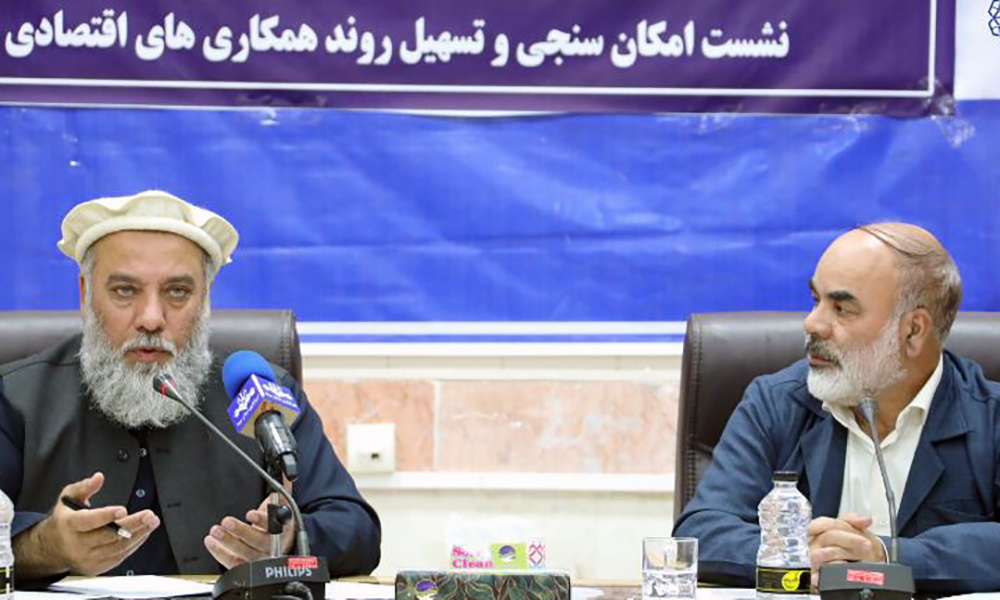
Acting Minister of Commerce and Industry of the Islamic Emirate of Afghanistan Nooruddin Azizi arrived in Iran’s Sistan and Baluchistan Province on Thursday for a meeting on facilitating the process of economic cooperation between the two countries.
The ministry’s spokesman Abdulsalam Javadakhandzadaa said Thursday the minister discussed the development of trade and transit relations between Iran and Afghanistan – but with the focus on the province of Sistan and Baluchistan.
Aziz also discussed the need to strengthen processes for goods through Chabahar port and emphasized the need to resolve issues relating to this trade route.
According to Javadakhandzadaa officials of the two countries discussed the strengthening of commercial and economic cooperation, while Azizi requested that costs be lowered for goods and for land to be made available in Chabahar to Afghan businessmen and for railway facilities to be provided.
Both sides agreed that in order to develop trade between the two countries and to strengthen transit through Chabahar, a joint technical committee would be established on a provincial level and that issues will be followed up by the central committee.
Business
More trade contracts signed between Uzbekistan and Afghanistan
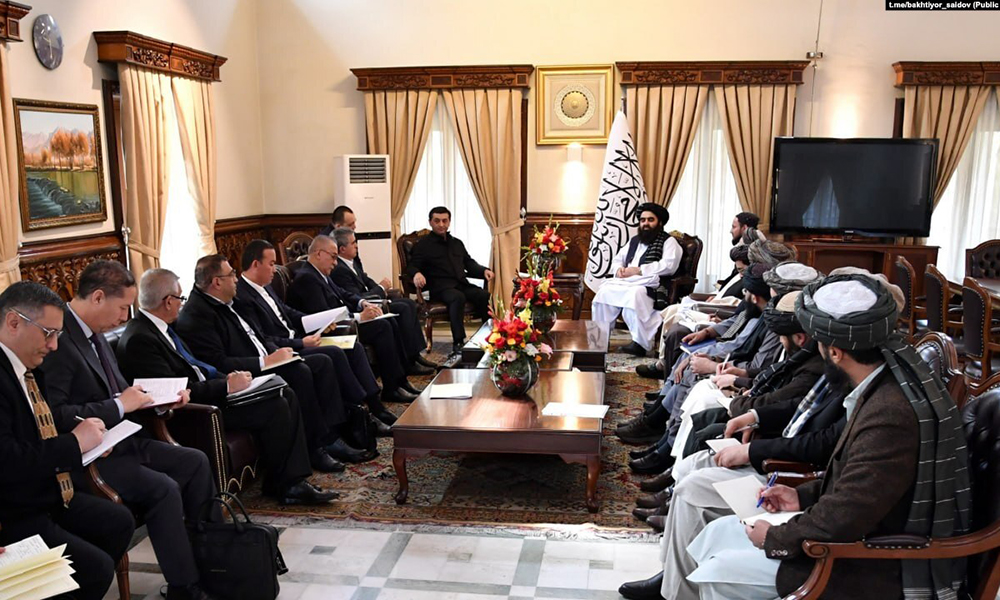
Uzbekistan has agreed to sign export contracts worth $44 million with Afghanistan, according to a report by the Chamber of Commerce and Industry of Uzbekistan.
The contracts were signed during a three-day visit to Tashkent by a delegation of Afghan businessmen.
The two nations are also planning to form an Uzbekistan-Afghanistan Business Council, which will have 18 Afghan companies among its members.
Afghanistan’s import market is worth $7 billion. The goods that are most in demand with Afghan importers are agricultural products, processed food, textiles, leather, electrical components and construction materials.
-

 Sport4 days ago
Sport4 days agoAfghanistan announce T20 World Cup 2024 squad
-

 Sport4 days ago
Sport4 days agoNew Zealand to go ahead with Afghanistan cricket Test
-

 Sport5 days ago
Sport5 days agoKolkata Knight Riders hammer Delhi Capitals in heatwave-hit IPL
-
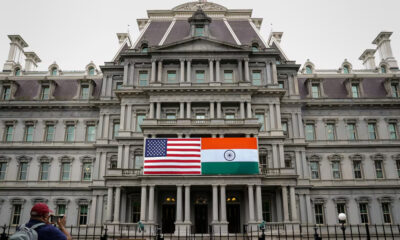
 Regional5 days ago
Regional5 days agoReported Indian role in assassination plots a ‘serious matter’, White House says
-
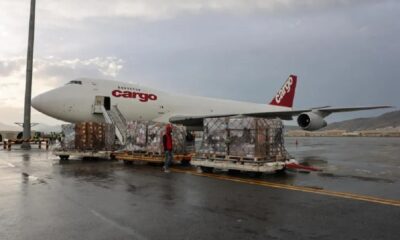
 Latest News5 days ago
Latest News5 days agoSave the Children sends plane with 92 tonnes of medicines to Afghanistan
-

 Latest News4 days ago
Latest News4 days agoWorld Bank donates $84 million to Afghanistan
-

 Regional4 days ago
Regional4 days agoIsrael will enter Rafah with or without Gaza hostage deal, Netanyahu says
-

 Latest News3 days ago
Latest News3 days agoWork permits issued to over 2,000, including women: Labor Ministry















